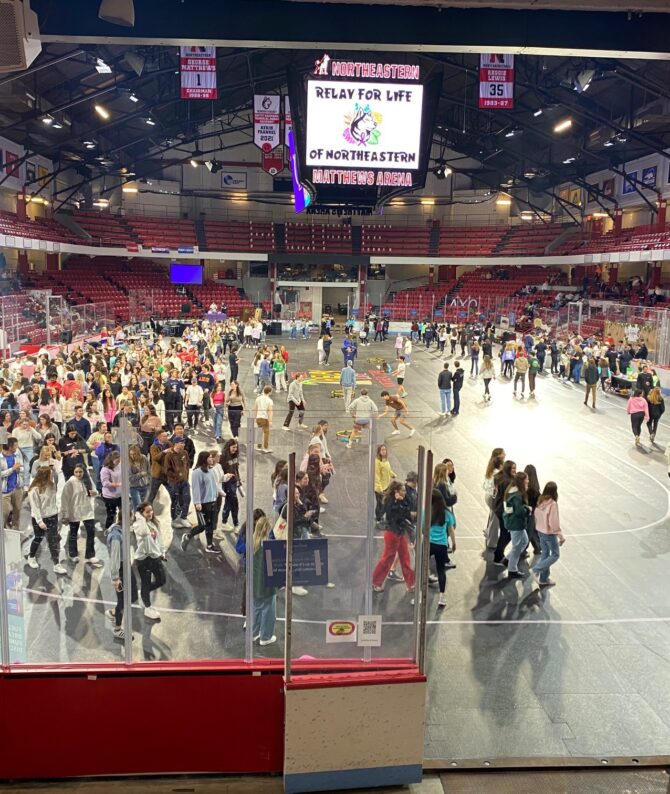PREF Launches DEI Learning Series

As part of PREF’s diversity, equity and inclusion (DEI) efforts, we’ve launched the DEI Learning Series which aims to give staff an opportunity to dive deep on topics that will help assist their personal and professional knowledge of DEI. To kick off the series, our Director of Diversity, Equity, Inclusion and Culture invited guest speaker Dr. Melissa Berry-Woods, the Director of Learning, Development and Student Success at the Office of Diversity, Equity and Inclusion to facilitate the session
The effort for the educational series was born out of the PREF’s DEI advisory council which initially formed in 2020. In September 2022, our Director of DEI & Culture was hired and they have been implementing the priorities for the council across the department.
During the educational event, Dr. Berry-Woods emphasized that lived experience was crucial when discussing identity and biases yet reminded attendees that it is not people of color’s responsibility to educate their white counterparts on the best ways to show up as an ally. She spoke about how BIPOC (Black, Indigenous and people of color) and DEI are not catchall terms and encouraged people to be intentional when using those phrases to ensure they were appropriately addressing their target audiences.
| “This is really to open the conversation, to get people a little braver about asking questions,” Dr. Berry-Woods said. “I always say that this is a journey like everything else. It’s a lifelong learning experience”
First, employees split into breakout groups and discussed what life was like for them during their formative teenage years. People were encouraged to share what messages were being spread about race and otherness from culture, society and family and how that may have impacted their own views. Berry-Woods connected it to the cycle of socialization that everyone experiences, because from a young age, people’s perceptions and beliefs about the world are shaped by surrounding institutions, culture, interpersonal relationships and tradition. |
 |
Dr. Berry-Woods then had attendees look at two images, the first of one dead fish then of a whole school of dead fish. When asked the cause of death, respondents blamed the singular fish for its own death yet saw a larger systemic issue for the cause of the death of the entire school of fish. This exercise was a way for attendees to begin thinking about issues of oppression on the systemic level and the way that the presentation of information can leave certain key things out.
Next, attendees discussed scenarios where power dynamics and racial stereotypes may have come into play. In groups, attendees discussed how miscommunication between a supervisor and an employee may be tinged by racial undertones, encouraging attendees to be more vigilant about what is happening in their own workplace.
Educational videos provided some definitions for people to digest. A NYT video discussing implicit bias covered the cognitive shortcuts people do and clarified that saying someone has an implicit bias is different than calling someone a racist.
“Implicit bias is something that comes out of ordinary mental functioning, out of how the mind normally works,” said Calvin Lai of Project Implicit said.
Dr. Berry-Woods described implicit bias as someone’s knee jerk reaction, and by learning more about it, people can think critically about the decisions they make and the potential biases behind them.
“If we’re not checking into our own biases and assumptions about things, just think about the opportunities that walk past us,” Berry-Woods said.
Dr. Berry-Woods told the story of John Punch, an escaped indentured servitude who was Black and was sentenced to life as a slave while his fellow escaped indentured servants who were white only got sentenced to one extra year. Many refer to Punch as the first official slave in the United States and Berry-Woods uses this example to discuss what she refers to as white advantage, rather than white privilege. Historically, people of color have been repeated marginalized and oppressed on account of their race. Generational wealth was unattainable for many nonwhite families, and while people may squirm at the term white privilege, Berry-Woods finds the term white advantage more accurate.
After the presentation, attendees were told to bring their ideas into the workforce. As PREF continues to deepen its knowledge, these sessions will serve as a touchpoint to ensure everyone has an opportunity to learn, reflect and take action on diversity, equity and inclusion practices. On large poster boards, people could go around and make note of the current state of a specific topic as well as challenges and future goals. For example, under equity, people could write that currently the office is making strides towards equity, challenges could be a lack of knowledge and awareness and the future could be a true equitable workforce.
Berry-Woods does many of these educational sessions across the university and hopes to hire more people to facilitate them as the global network is expanding. More people are interested in learning more about diversity in the workplace and she hopes that every campus and every organization to have the same opportunity for learning and same high-quality engagement.
“You can’t un-ring a bell,” Berry-Woods said. “This bell has been rung and everybody will be thinking — whether they admitted or not — they’ll be thinking about those scenarios. They’ll be thinking about what happened and they’ll be thinking ‘do we have similar scenarios?’”
Written by Renée Abbott, May 16th, 2023



